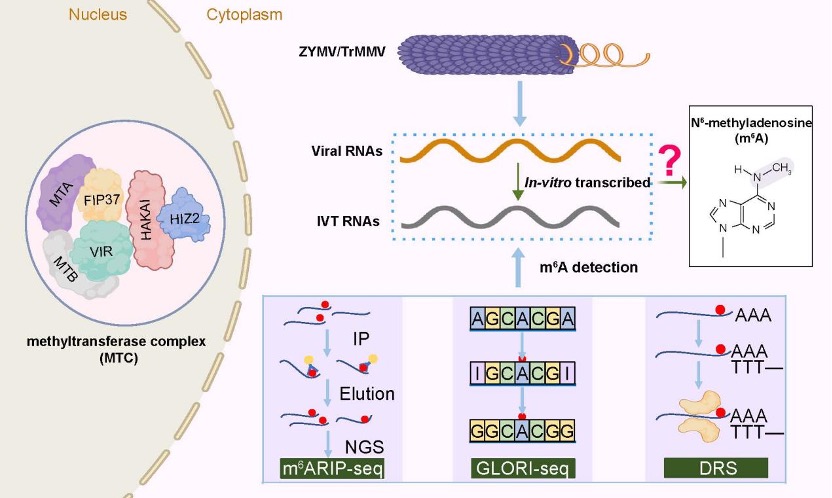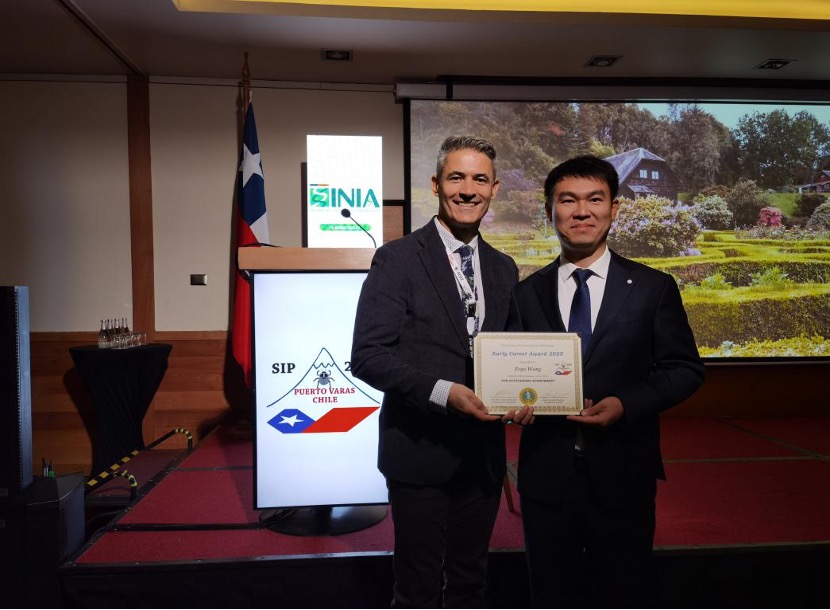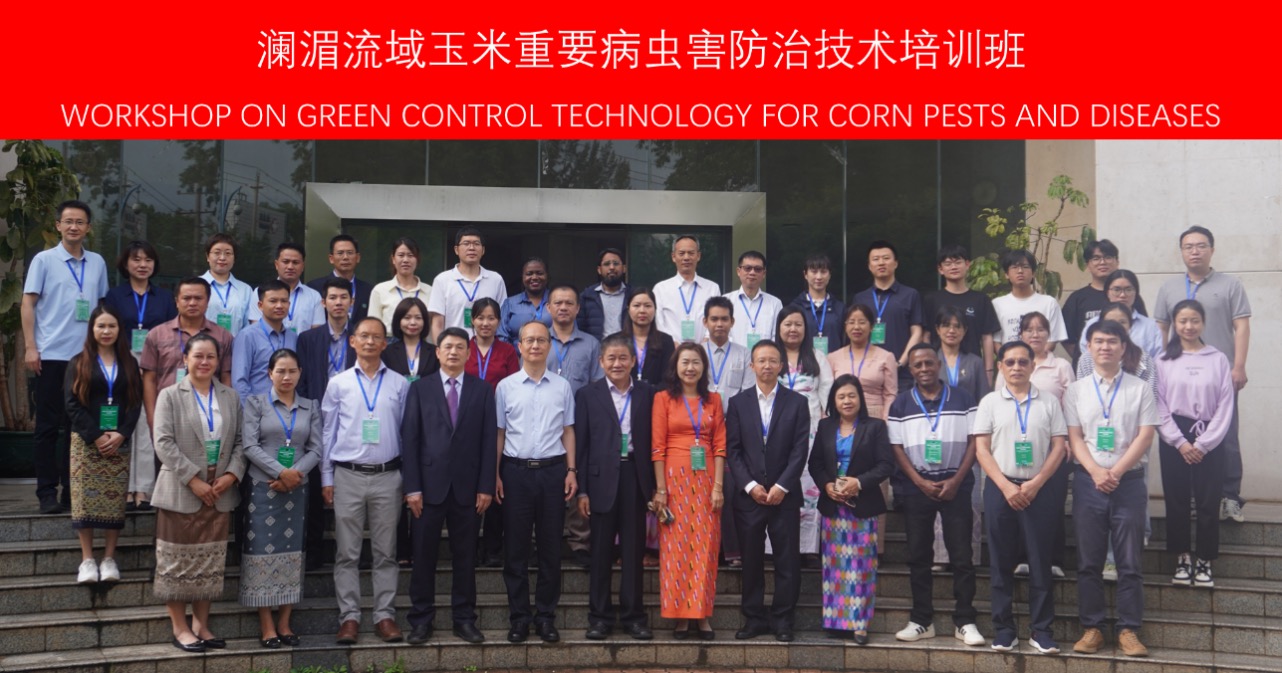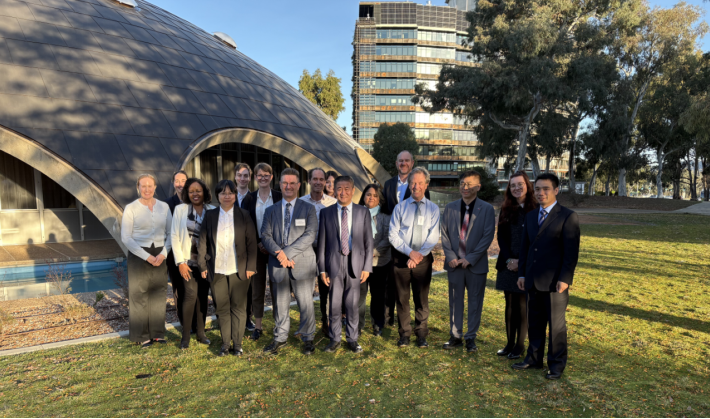IPPCAAS and Partners Reveal the Lack of m⁶A Modification in Two Plant RNA Viruses
The team of Prof. Zhou Xueping at the Institute of Plant Protection, Chinese Academy of Agricultural Sciences (IPPCAAS), together with the team of Dr. Li Shaofang at the Beijing Academy of Agriculture and Forestry Sciences (BAAFS), recently published a research article entitled “Epi-transcriptome analysis reveals the lack of N6-methyladenosine modification in two RNA viruses infecting watermelon” inScience Bulletin (Impact Factor = 21.1). The study, using three independent m⁶A detection methods, demonstrated that the RNAs of two cytoplasm-replicating RNA viruses infecting watermelon—trichosanthes mottle mosaic virus (TrMMV) and zucchini yellow mosaic virus (ZYMV)—lack N⁶-methyladenosine (m⁶A) modifications, providing new insights into plant viral epitranscriptomics.
N⁶-methyladenosine (m⁶A) is the most abundant internal modification in eukaryotic mRNAs, occurring at the nitrogen-6 position of adenosine, and plays crucial roles in gene expression regulation. This modification is catalyzed by the nuclear-localized m⁶A methyltransferase complex (MTC). While m⁶A-seq has greatly advanced this field, it is prone to false signals. For example, early studies using antibody-based m⁶A-seq reported m⁶A modifications in several cytoplasm-replicating viruses such as chikungunya virus (CHIKV) and dengue virus (DENV). However, more recent antibody-independent methods such as SELECT and Direct RNA Sequencing revealed that these viruses actually lack m⁶A, highlighting both the importance of methodological choice and the critical scientific question of whether cytoplasmic RNA viruses generally contain m⁶A modifications.
Focusing on TrMMV and ZYMV, the researchers first conducted m⁶A RIP-seq on total RNA from infected watermelon leaves, using in vitro–transcribed unmodified viral RNAs as negative controls. Although enrichment peaks were detected on viral RNAs in total RNA samples, similar peaks were observed in the negative controls, indicating the absence of m⁶A in both viruses and demonstrating that antibody-based RIP-seq may generate false-positive signals that can be effectively ruled out with proper controls.
To further confirm, the team applied the antibody-independent GLORI-seq method, which also confirmed the lack of m⁶A modifications in both viral RNAs. Given that ZYMV RNA has a poly(A) tail, nanopore Direct RNA Sequencing (DRS) was also performed. With stringent thresholds and negative controls, DRS similarly detected no reliable m⁶A signals in ZYMV RNA and found no evidence of m⁵C, A-to-I editing, or Ψ modifications.
This study reveals that m⁶A modifications may not be universally present in cytoplasmic plant RNA viruses. The findings underscore the critical importance of using rigorous negative controls in viral and host epitranscriptome research, and provide methodological strategies to reduce false positives and achieve unbiased detection in future studies.
Mr. Pan Fuan (PhD candidate) and Dr. Jing Jiaxian (postdoctoral fellow) are co-first authors. Prof. Zhou Xueping (IPPCAAS) and Dr. Li Shaofang (BAAFS) are co-corresponding authors. This research was supported by the National Key R&D Program of China, the Innovation Development Project of the Beijing Vegetable Research Center, and High-Level Talent Start-up Funds.

Link: https://www.sciencedirect.com/science/article/pii/S209592732500739X?via%3Dihub
-
 IPPCAAS Expert Wins the Society for Invertebrate Pathology Early Career Award
IPPCAAS Expert Wins the Society for Invertebrate Pathology Early Career Award -
 Workshop on Green Control Technology for Corn Pests and Diseases in the Lancang-Mekong Region successfully held in Kunming
Workshop on Green Control Technology for Corn Pests and Diseases in the Lancang-Mekong Region successfully held in Kunming -
 IPPCAAS Experts Visit Australia to Promote In-Depth China–Australia Cooperation in Plant Biosafety
IPPCAAS Experts Visit Australia to Promote In-Depth China–Australia Cooperation in Plant Biosafety -
 China-France cooperation in plant protection was further strengthened
China-France cooperation in plant protection was further strengthened
